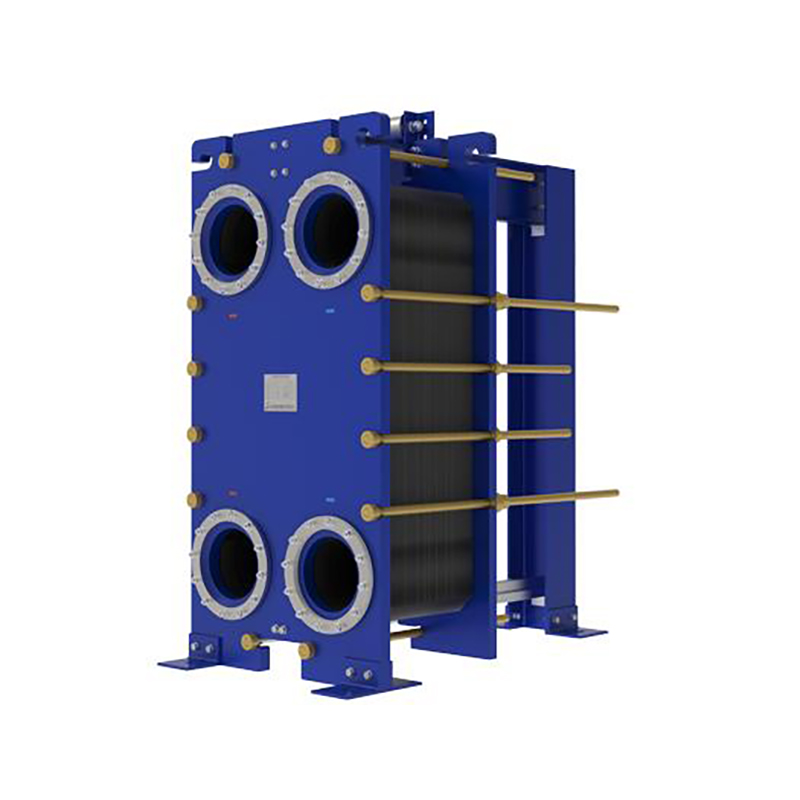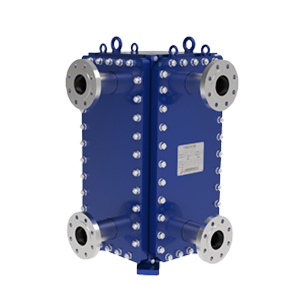5 key roles of plate heat exchanger gaskets.
Plate heat exchanger gaskets perform 5 key roles: ...
More
A gas heat exchanger is a critical component in heating systems that facilitates the transfer of thermal energy between gases, ensuring efficient heat distribution. It is widely used in industrial processes, HVAC systems, and residential heating solutions. By leveraging advanced materials and designs, gas heat exchangers maximize energy efficiency while minimizing heat loss, making them indispensable in modern thermal management.
Gas heat exchangers operate by allowing hot gases to pass through a series of tubes or plates, transferring heat to a cooler gas or fluid without direct contact. This process is essential in applications like boilers, furnaces, and power plants, where energy conservation is paramount. Modern designs incorporate corrosion-resistant materials such as stainless steel or aluminum to enhance durability and performance. According to industry reports, the global heat exchanger market is projected to grow at a CAGR of 5.3% from 2023 to 2030, driven by increasing demand for energy-efficient solutions. Whether for industrial or residential use, gas heat exchangers play a pivotal role in reducing operational costs and environmental impact.
Gas heat exchangers offer unparalleled efficiency, durability, and cost-effectiveness, making them the preferred choice for diverse heating applications. Their ability to optimize energy use and reduce waste aligns with global sustainability goals, while their robust construction ensures long-term reliability.
Choosing a gas heat exchanger ensures significant energy savings, with some models achieving thermal efficiency rates of over 90%. Industry studies highlight that businesses using high-efficiency heat exchangers can reduce fuel consumption by up to 30%, leading to substantial cost reductions. Additionally, their compact design allows for easy integration into existing systems, minimizing installation downtime. Environmental benefits are another key advantage, as gas heat exchangers help lower greenhouse gas emissions by maximizing heat recovery. With advancements in technology, such as condensing heat exchangers, users can achieve even higher performance levels. For industries seeking to enhance productivity while adhering to environmental regulations, gas heat exchangers are an ideal solution. Their proven track record in sectors like manufacturing, petrochemicals, and HVAC underscores their versatility and reliability.
Select the most popular foreign trade service products to meet your diverse needs
Learn more about the dynamics and professional knowledge of the foreign trade industry

Plate heat exchanger gaskets perform 5 key roles: ...
More
A gasket in heat exchanger seals surfaces, blocks ...
More
API 662 defines standards for plate heat exchanger...
More
You can see clear differences between welded block...
More
Compare top frame plate heat exchanger models for ...
More
User reviews show the american standard heat excha...
MoreSelect the most popular foreign trade service products to meet your diverse needs
Explore more content related to foreign trade services

User Comments
Service Experience Sharing from Real Customers
John Smith
Mechanical EngineerThe gas heat exchanger is incredibly efficient and has significantly improved our system's performance. Highly recommended!
Emily Johnson
HVAC TechnicianGreat product! The gas heat exchanger is durable and easy to install. It has been a reliable component in our HVAC systems.
Michael Brown
Plant ManagerThis gas heat exchanger has exceeded our expectations. It's energy-efficient and has reduced our operational costs.
Sarah Davis
Energy ConsultantThe gas heat exchanger is a solid choice for any energy-saving project. It performs well and is built to last.